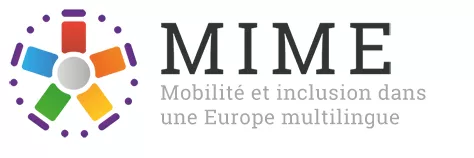
PPA Research Clusters
The Department of Politics and Public Administration has an active research culture, providing a home for the Centre for Peace, Development and Social Justice and bringing together 14 UL scholars concerned with different aspects of democratic performance, empirically and conceptually, in Ireland, internationally and comparatively. There are four thematic strands which are all active in terms of research outputs and plans. These are: Democratic Performance; Global Transformation and Conflict; and Social Justice and Public Ethics.
In addition, members of the Department are active in a number of community-oriented research and civic engagement initiatives e.g. The President of Ireland Ethics Initiative. The Department of Politics and Public Administration is home to the UL Practicum which provides accredited student learning in established university/ community collaborative projects.
Research Projects

Helping voters to make an informed choice
To make an informed decision in a democratic election, voters must critically assess the policies and the track record of both the political parties and candidates competing for their vote. However, the lack of accessible, objective information in the public domain makes this a challenging task and risks many voters making a decision on more superficial grounds such as campaign slogans and posters. Research at the University of Limerick by Dr Rory Costello is actively exploring and tackling this problem.
Read the research impact case study and podcast interview here.
MIME - Mobility and Inclusion in a Multilingual Europe
The MIME consortium includes 20 universities, one independent non-profit foundation, and one SME, representing no less than 16 different countries. The location of consortium partners spans northern and southern, eastern and western Europe. The range of scientific and methodological backgrounds brought together in the project is very rich, with researchers specialised in linguistics, political science, history, philosophy, sociology, geography, economics, education, translation studies, psychology,and law.

MIME - Mobility and Inclusion in a Multilingual Europe is a research project on multilingualism in Europe, funded by the European Commission’s Seventh Framework Programme. Using an innovative interdisciplinary approach, MIME will generate an organised body of policy-relevant propositions, identifying the language policies and strategies that best combine “mobility” and “inclusion.” The diverse concepts and methods are combined in an analytical framework designed to ensure their practice-oriented integration. MIME identifies, assesses and recommends measures for the management of trade-offs between the potentially conflicting goals of mobility and inclusion in a multilingual Europe. Rather than taking existing trade-offs as a given, we think that they can be modified, both in symbolic and in material/financial terms, and we argue that this objective can best be achieved through carefully designed public policies and the intelligent use of dynamics in civil society.
Responding to HIV/AIDS in Africa: Connecting Public Administration, Policy and Communities

The Department of Politics and Public Administration in partnership with the University of KwaZulu Natal, South Africa, University of Dar es Salaam, Tanzania, and Makerere University, Uganda.
The Responding to HIV/AIDS in Africa: Connecting Public Administration, Policy and Communities project examines the role of public administration systems in the delivery of effective HIV/AIDS policies. It is concerned with the relationships between public administrators and other agencies and organisations responsible for developing and implementing HIV/AIDS policy, and with how these policy networks engage with affected individuals and communities. Some African governments have been more successful in addressing the pandemic than others, and this project will compare their approaches to the administration of policy, charting how policy is understood, interpreted and delivered within relevant policy networks. It will identify criteria that determine optimal policy implementation while employing an emancipatory approach that envisages the research process itself as a means to promote the development of sustainable networks, capabilities and pro-poor policy outcomes
Email: ahss@ul.ie
Phone: +353-61-202700
Postal Address: AHSS Faculty Office, University of Limerick, Limerick, Ireland.